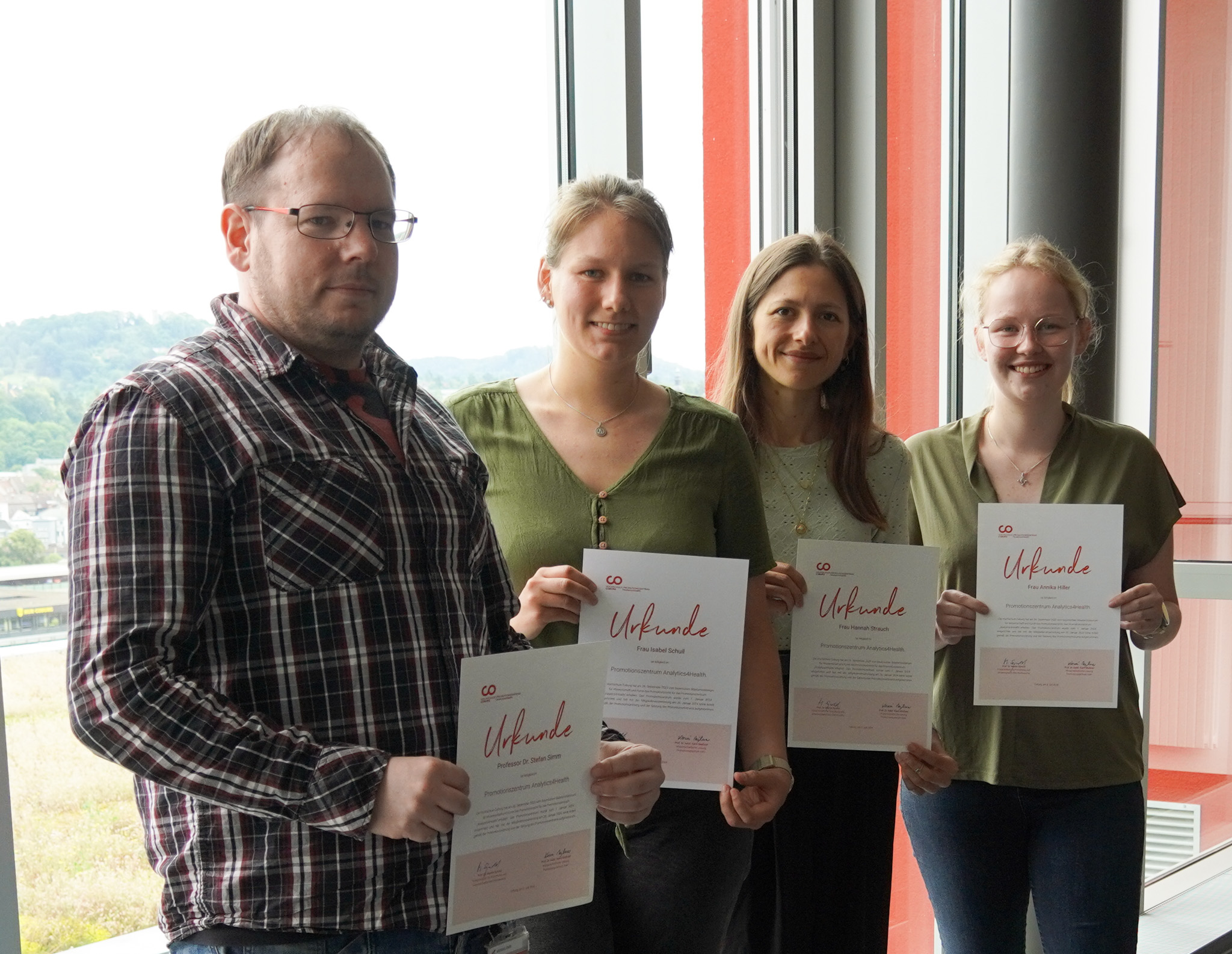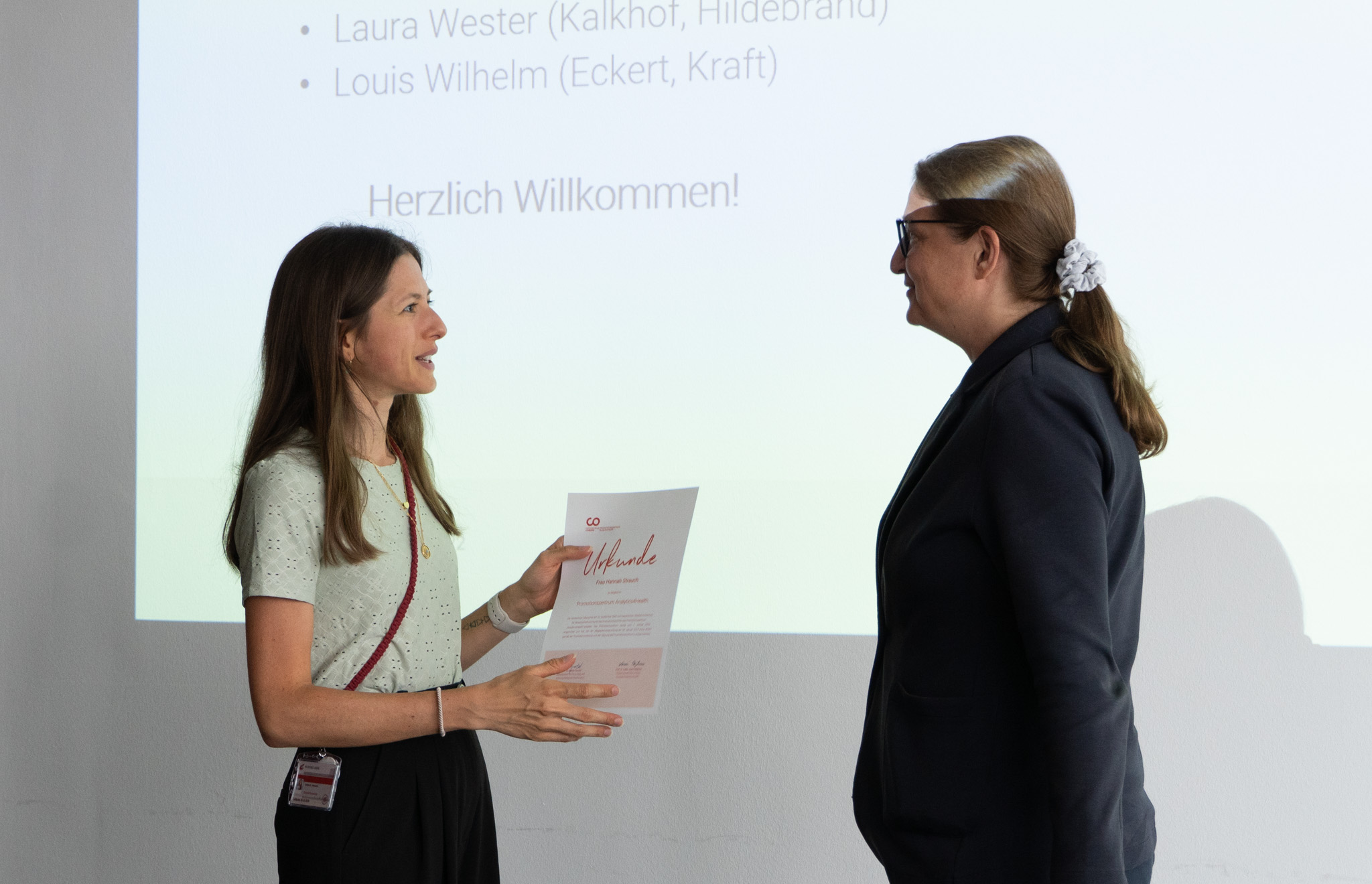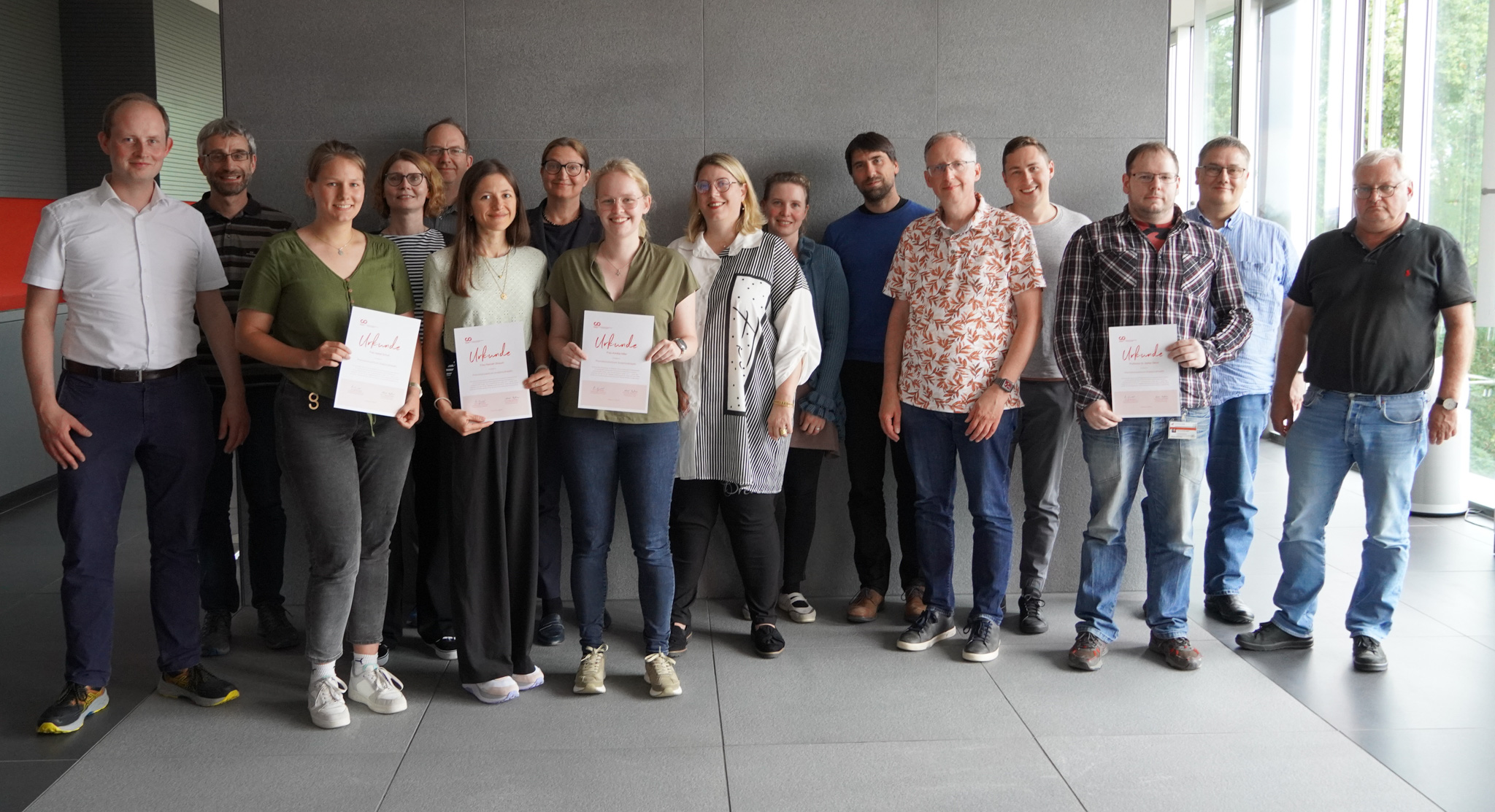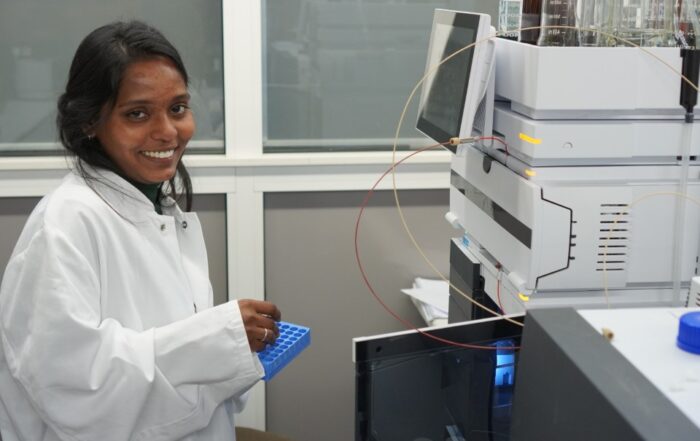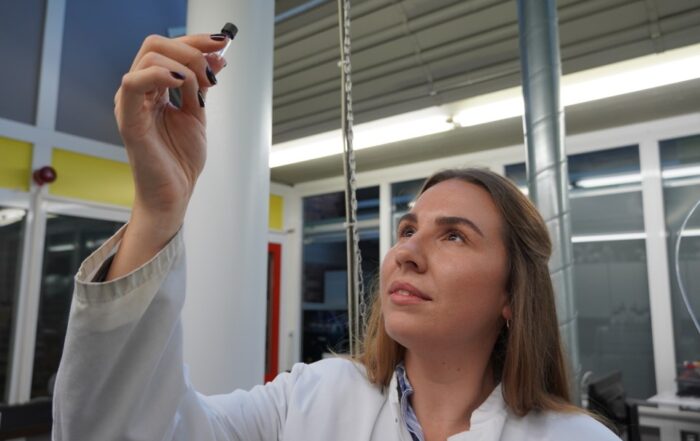15. July '24
by Andreas T. Wolf
Here we go at last!
At their third meeting, the members of the Analytics4Health (A4H) doctoral center accepted seven doctoral students.
They are the first to benefit from Coburg University of Applied Sciences’ right to award doctorates.
In addition, two new professors bring new research opportunities with them.
Can virtual realities reduce stress?
Can passive skin implants harvest energy to measure temperatures and transfer data?
How can global health be protected in the face of climate change?
These and other complex questions are being asked by the first seven doctoral students at Coburg University of Applied Sciences, who are being supported by the A4H doctoral center.
They were formally accepted at the third general meeting at the beginning of July.
Professors from the research areas of health sciences, bioanalytics and data sciences are supporting them in their doctoral studies.
Where subject areas overlap, supervisors from the respective disciplines ensure a high level of quality in the work, as academic director Prof. Dr. Karin Meißner from the Faculty of Applied Natural Sciences and Health assures: “Our current doctoral projects focus on interdisciplinary approaches in order to develop innovative solutions to urgent challenges.”
As examples, she cites pioneering studies on the role of reinsurance in the age of climate change, the identification of biomarkers in dehydrated patients and the heating of implants during a magnetic resonance imaging (MRI) examination.
“Four other doctoral projects are researching advanced solutions for a more relaxed approach to stress in the context of health and chronic illness, with approaches ranging from holistic methods to the use of state-of-the-art technologies such as virtual reality and artificial intelligence.” The doctoral topics Katharina Weiß, for example, is investigating coping strategies for adenomyosis-induced infertility: these are methods for dealing with the stressful situations caused by this condition.
An abnormal growth of mucosal tissue in the uterus can cause patients to suffer from pain, bleeding or even infertility.
Isabel Schuil is dedicated to the role of artificial intelligence in health promotion.
She is planning experimental studies to investigate the stress-reducing effect of virtual reality in various settings.
Similarly, Hanna Strauch is looking for opportunities and challenges in VR-based interventions for dealing with stress.
She is interested in how virtual reality can be used to help people cope better with stress.
Louis Wilhelm is working on a project to protect planetary health from climate change.
He is analyzing the impact of the reinsurance business to understand how this industry can help protect our planet.
Laura Wester is investigating the “mechanisms of osmoregulation and biomarker identification in human skin cells and plasma”.
She hopes to gain new insights into the functioning of our skin and blood through her research.
Finally, Viktoria Veltkamp is researching “Energy harvesting, temperature measurement and data transmission in an electrically passive implant with coil and electrode wire during an MRI examination”.
She is working on the development of technologies that make it possible to harvest energy and transmit data during an MRI examination. Annika Hiller focuses on the integration of complementary and alternative medicine methods in health promotion.
Her aim is to investigate the effects of these methods on stress in various therapeutic contexts.
She is also one of the Tandem PhD students who has been networked with a local company through the Impetus project.
This allows her to work on both her doctorate and her career at the same time, as she says: “This means I am working full-time. I am doing my tandem doctorate in cooperation with the Bamberg Social Foundation, in the Clinic for Integrative Medicine and Naturopathy, Department of Science and Research. I am currently working on a yoga study on breast cancer.”
Participants are still being sought for the study. Two newly appointed professors have also been welcomed to the doctoral center: Prof. Dr. Stephan Pflugmacher Lima and Prof. Dr. Stefan Simm will be working as supervisors in their research areas of environmental chemistry and ecotoxicology as well as bioinformatics.
The scientific director of the doctoral center, Prof. Dr. Karin Meißner, is delighted about the additional opportunities: “Professor Simm contributes to the development of precise and data-driven health solutions through his expertise in the analysis of large biological data sets. Professor Pflugmacher Lima’s research provides valuable insights into environmental factors and their impact on planetary health.”
According to Meißner, both professors are thus strengthening the interdisciplinary link between data science, bioanalytics and health science in the Analytics4Health doctoral center.
Prof. Simm already has a lot of experience in the doctoral field: “I am currently supervising six doctoral students in Greifswald and have already acquired three additional funding opportunities with one doctoral position each, which I would also like to bring to Coburg.”
Two further supervisions in the field of smart farming are already planned at Coburg University of Applied Sciences. Doing your own doctorate Applications can be submitted to the doctoral center in German or English on an ongoing basis.
To be considered for the next committee, they should be received by October 1, 2024.
The doctoral center Analytics4Health of Coburg University of Applied Sciences bundles research activities to sustainably improve the health and well-being of people in the context of their environment. It is one of eleven doctoral centers at Bavarian universities and has had its own right to award doctorates since September 26, 2023. A degree leads to the title of Dr. rer. nat. or Dr.-Ing. With the new addition of the newly appointed members, A4H now has a total of 26 people, including 18 professors and seven doctoral students. These research projects are just a few examples of the diverse and innovative work currently being carried out at Coburg University of Applied Sciences. The project Impetus is a project funded as part of the federal-state initiative ‘FH-Personal’ that creates and supports professorships in higher education.
The tandem doctorates support doctoral candidates and the regional economy.


